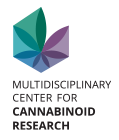Citation:
Abstract:
Diabetic nephropathy (DN), a distinct manifestation of diabetic kidney disease, affects approximately 30% of patients with diabetes. While most attention has been focused on glomerular changes related to DN, there is growing evidence that tubulopathy is a key feature in the pathogenesis of this disease. The renal proximal tubule cells (RPTCs) are particularly sensitive to the deleterious effect of chronic hyperglycemia. However, the cellular changes that control the dysfunction of the RPTCs are not fully understood. Controlling glucose reabsorption in the proximal tubules via inhibition of glucose transporters (GLUT) has emerged as a promising therapeutic in ameliorating DN. Overactivation of the renal endocannabinoid (eCB) system via the cannabinoid-1 receptor (CB1R) contributes to the development of DN, and its blockade by globally acting or peripherally restricted CB1R antagonists has been shown to ameliorate renal dysfunction in different murine models for diabetes. Recently, we have utilized various pharmacological and genetic tools to show that the eCB/CB1R system contributes to the development of DN via regulating the expression, translocation, and activity of the facilitative GLUT2 located in the RPTCs. These findings have the potential to be translated into therapy, and support the rationale for the preclinical development of novel renal-specific CB1R and/or GLUT2 inhibitors for the treatment of DN. © 2019 S. Karger AG, Basel. All rights reserved.
Notes:
cited By 3
